Filter by

From revolt to riches : culture and history of the Low Countries, 1500-1700
This collection investigates the culture and history of the Low Countries in the sixteenth and seventeenth centuries from both international and interdisciplinary perspectives. The period was one of extraordinary upheaval and change, as the combined impact of Renaissance, Reformation and Revolt resulted in the radically new conditions – political, economic and intellectual – of the Dutch Re…
- Edition
- -
- ISBN/ISSN
- 9781910634899
- Collation
- XII, 310 p.
- Series Title
- Global Dutch
- Call Number
- 949.202 HER f
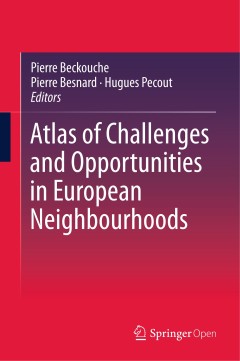
Atlas of challenges and opportunities in European neighbourhoods : stemming f…
This atlas provides a macro-regional overview of the areas that surround the European Union, from the Sahara to the Middle East, Western Balkans to European Russia, Turkey to the Arctic. Detailing key socio-economic data as well as developmental trends, the maps provide a comprehensive territorial analysis at a local scale and explore the potential for regional integration and cooperation. Thes…
- Edition
- -
- ISBN/ISSN
- 9783319285214
- Collation
- xxiii, 198p. : ill.
- Series Title
- -
- Call Number
- 304.2 ATL a
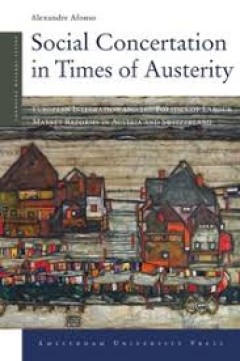
Social concertation in times of austerity: European integration and the polit…
Why do governments still negotiate with trade unions and employers in the design of labour market and welfare reforms despite the steady decline of trade union membership almost everywhere in Europe? Social Concertation in Times of Austerity investigates the political underpinnings of social concertation in this new context with a focus on the regulation of labour mobility and unemployment prot…
- Edition
- -
- ISBN/ISSN
- 9789048512997
- Collation
- 258 pages : illustrations ; 23 cm.
- Series Title
- Changing welfare states
- Call Number
- 338.9436 AFO s
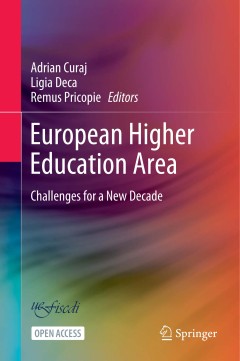
European higher education area: challenges for a new decade
This open access book highlights the major outcomes of the fourth edition of the Future of Higher Education – Bologna Process Researchers Conference (January 2020), which has already established itself as a landmark in the European higher education environment. The conference provides a unique forum for dialogue between researchers, experts and policy makers in the field of higher education, …
- Edition
- -
- ISBN/ISSN
- 9783030563165
- Collation
- lv, 596p. : ill.
- Series Title
- -
- Call Number
- 378 EUR e
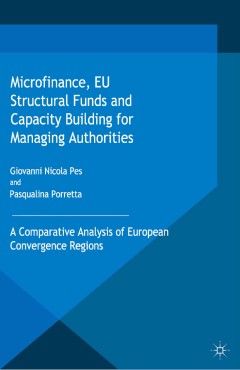
Microfinance, EU structural funds and capacity building for managing authorit…
In recent years, the European Commission has attached increasing importance to the use of financial engineering instruments rather than traditional grant-based financing for the microcredit sector, considering these to be the most efficient option available. This book presents a study of capacity building and structural funds in public managing authorities for the microcredit sector. It present…
- Edition
- -
- ISBN/ISSN
- 978137536020
- Collation
- xxx, 286p. : ill.
- Series Title
- -
- Call Number
- 332 MIC m
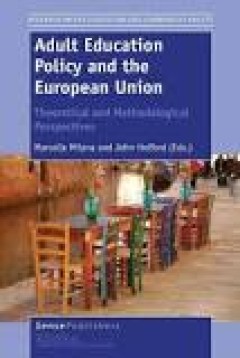
Adult education policy and the European Union: theoretical and methodological…
The European Union is now a key player in making lifelong learning and adult education policy: this is the first book to explore a range of theoretical and methodological perspectives researchers can use to investigate its role. Readership: Educational Researchers and their students
- Edition
- -
- ISBN/ISSN
- 9789462095489
- Collation
- 194 p.; 22 cm
- Series Title
- Research on the Education and Learning of Adults, 1
- Call Number
- 374.924 ADU a
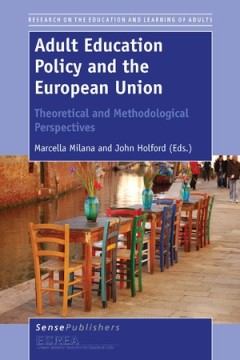
Adult education policy and the European Union : theoretical and methodologica…
The European Union is now a key player in making lifelong learning and adult education policy: this is the first book to explore a range of theoretical and methodological perspectives researchers can use to investigate its role. Chapters by leading experts and younger scholars from across Europe and beyond cover the evolution of EU policies, the role of policy ‘actors’ in what is often seen…
- Edition
- -
- ISBN/ISSN
- 9789462095472
- Collation
- xiii, 179p. : ill.
- Series Title
- -
- Call Number
- 374.924 ADU a
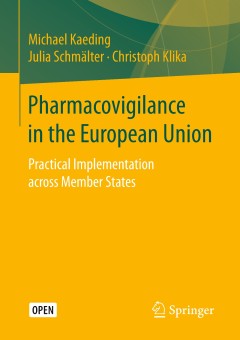
Pharmacovigilance in the European Union : practical implementation across mem…
The book presents the results of an in-depth comparative study assessing the implementation of the EU Pharmacovigilance Directive in six EU Member States. By going beyond legal transposition and instead focusing on practical implementation, this study aims to close a gap in EU compliance research. Based on qualitative interviews with relevant actors in Germany, Poland, Portugal, France, Finland…
- Edition
- -
- ISBN/ISSN
- 9783658172763
- Collation
- xiv, 124p. : ill.
- Series Title
- -
- Call Number
- 615.7042 KAE p

Scholars in exile: the Ukranian intellectual world in interwar Czechoslovakia
Throughout the 1920s and 30s Prague was the intellectual center of Ukrainian émigrés in Europe, not least because of significant financial support from the Czechoslovak government and its first president, Tomáš Garrigue Masaryk, for émigré students and intellectuals. On the basis of extensive archival research in Ottawa, Prague, and Kyiv, Zavorotna outlines the continuation of Ukrainian s…
- Edition
- -
- ISBN/ISSN
- 9781487530204
- Collation
- xvi, 260p.: ill.
- Series Title
- -
- Call Number
- 943.700491791009042 ZAV s

Turn on the light on science: a research-based guide to break down popular st…
"Scientists deserve public recognition. The ways that they are depicted, however, are severely limited in physical and personal traits, helping to establish and enhance stereotypes under the general title of ‘scientist’. These stereotypes range from the arrogant researcher who wants to rule the world, to the lab coat wearing ‘nerdy’ genius, but all generally fall to an extreme view of a…
- Edition
- -
- ISBN/ISSN
- 9781911529057
- Collation
- xvi, 104p.: ill.
- Series Title
- -
- Call Number
- 530.092 TIN t
 Computer Science, Information & General Works
Computer Science, Information & General Works  Philosophy & Psychology
Philosophy & Psychology  Religion
Religion  Social Sciences
Social Sciences  Language
Language  Pure Science
Pure Science  Applied Sciences
Applied Sciences  Art & Recreation
Art & Recreation  Literature
Literature  History & Geography
History & Geography